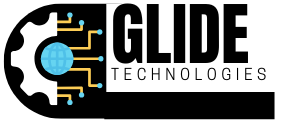Table of Contents
ToggleIn a world where businesses are racing to stay ahead, Software as a Service (SaaS) companies are the unsung heroes. They’ve transformed the way organizations operate, making complex tasks as easy as pie—if pie were a cloud-based solution, that is. From managing projects to streamlining customer relationships, these companies are the backbone of modern business efficiency.
Imagine a life where software updates don’t require a degree in rocket science and where collaboration happens faster than a cat meme goes viral. That’s the magic of top SaaS companies. They’re not just selling software; they’re offering a ticket to the future of work. Buckle up as we dive into the crème de la crème of SaaS, where innovation meets convenience, and productivity skyrockets—all while keeping a smile on your face.
Overview of Top SaaS Companies
SaaS companies play a pivotal role in the current business landscape. Innovative firms like Salesforce and Zoom lead the charge in customer relationship management and communication solutions. Companies such as Microsoft with its 365 suite, offer integrated solutions that enhance teamwork and productivity.
Industry leaders consistently address various business needs, improving workflows and enabling remote work. For example, HubSpot excels in marketing automation, helping businesses attract and engage customers effectively. ServiceNow stands out in IT service management, optimizing internal processes through automation.
Many top SaaS companies focus on security and data management. For instance, Dropbox provides secure file storage and sharing to facilitate collaboration. Additionally, companies like Atlassian offer project management tools that empower teams to work efficiently across different tasks.
The financial sector sees significant contributions from SaaS solutions. A company like QuickBooks simplifies accounting, allowing businesses to manage finances with ease. Expanding its services, FreshBooks targets invoicing and expense tracking for freelancers and small businesses.
Growth rates in the SaaS sector remain robust. Recent reports indicate that the global SaaS market reached a value of $145 billion in 2021, with projections suggesting continued growth in the following years. Such statistics illustrate the increasing reliance on cloud-based solutions for essential business operations.
Investing in top SaaS companies proves to be a strategic move. Organizations benefit from innovations that drive efficiency and enhance customer satisfaction. The future promises even more advancements, solidifying the importance of these companies in transforming the way businesses operate.
Criteria for Evaluation
When evaluating top SaaS companies, several criteria emerge as crucial in determining their effectiveness and impact.
Market Reach
Market reach reflects how well a company penetrates various industries and geographic regions. Leading SaaS companies often serve diverse sectors, from healthcare to finance, enhancing their customer base and revenue potential. For instance, Salesforce covers industries like retail and manufacturing, showcasing its adaptability. Global presence indicates scalability, suggesting the company’s ability to support large enterprises as well as small businesses. Companies that expand into emerging markets demonstrate proactive strategies to capture new clients and retain relevance.
User Experience
User experience ranks high among evaluation criteria, emphasizing the ease of navigation and interface design. Effective SaaS solutions prioritize intuitive user interfaces, ensuring users can perform tasks without extensive training. Companies like Zoom exemplify this principle, providing seamless video conferencing experiences. Feedback-driven design enhances user satisfaction, suggesting ongoing improvements based on actual customer needs. A smooth onboarding process also significantly impacts user retention; users expect immediate value from their software investment.
Innovative Features
Innovative features distinguish the best SaaS companies from competitors. Cutting-edge functionalities, such as AI integration and automation, enhance overall effectiveness. HubSpot, for instance, offers advanced marketing automation tools that boost campaign efficiency. Companies invest in research and development to provide unique capabilities, ensuring they meet dynamic market demands. Frequent updates keep software relevant, signaling a commitment to innovation while addressing evolving customer requirements.
Notable Top SaaS Companies
Leading SaaS companies play a vital role in transforming business operations through innovative solutions. Here are key players excelling in diverse areas.
Company One: Overview and Features
Salesforce stands out in customer relationship management. The platform offers comprehensive tools for sales, marketing, and analytics. Users benefit from robust reporting features and AI capabilities like Einstein AI that enhance lead scoring and forecasting. Its adaptability across various sectors showcases Salesforce’s versatility, with more than 150,000 companies leveraging its services worldwide. Integration with third-party applications further streamlines workflows, making it a favorite among enterprises aiming for efficiency.
Company Two: Overview and Features
Zoom revolutionizes communication with its intuitive interface and high-quality video conferencing services. It caters to businesses of all sizes, providing solutions for virtual meetings, webinars, and online events. Features like breakout rooms and virtual backgrounds enhance user engagement. Zoom also prioritizes security, ensuring encrypted communications to protect user data. Its rapid adoption during the pandemic demonstrates how critical this platform has become for remote collaboration and team connectivity.
Company Three: Overview and Features
HubSpot excels in marketing automation and inbound marketing tools. The platform offers features for content management, email marketing, and lead nurturing, making it ideal for businesses seeking to attract and engage customers. Users appreciate the easy-to-use dashboard and performance analytics. Integrating with various applications, HubSpot enhances overall marketing efficiency. As businesses shift focus to customer-driven strategies, HubSpot’s capabilities support proactive engagement and streamlined marketing efforts.
Industry Trends in SaaS
SaaS companies continually adapt to industry trends. Monitoring recent developments reveals significant growth in cloud computing and the rise of AI integration.
Growth in Cloud Computing
Cloud computing accelerates business agility and efficiency. Recent reports indicate that the global cloud computing market reached $390 billion in 2021. Companies increasingly adopt cloud solutions to enhance scalability and reduce costs. Many organizations migrate their operations to the cloud for flexibility and remote work support. Prominent SaaS providers like Salesforce and Microsoft leverage cloud infrastructure to deliver services globally. Utilizing cloud technology ensures seamless accessibility, empowering teams to collaborate effectively across various locations. Companies pursuing digital transformation benefit from these advances, which streamline workflows and improve resource management.
The Rise of AI Integration
Artificial intelligence integration shapes the future of SaaS solutions. Many industry leaders now embed AI features to enhance user experience. Current statistics show that 70% of organizations leverage AI in their software tools. AI-driven analytics, decision-making insights, and automation streamline tasks, reducing workloads for employees. For instance, HubSpot employs AI to improve marketing automation and customer engagement. Enhanced predictive analytics empower businesses to optimize strategies based on customer behavior. Embracing AI innovation allows SaaS companies to maintain competitiveness in a rapidly evolving market. As these technologies advance, they redefine operational excellence across industries.
The landscape of SaaS companies continues to evolve and shape the way businesses operate. With advancements in technology and a focus on user experience these companies are driving efficiency and innovation. Their ability to provide tailored solutions across various sectors highlights their importance in today’s digital economy.
As organizations increasingly adopt cloud-based solutions and leverage AI capabilities the significance of top SaaS providers will only grow. Investing in these companies not only enhances operational performance but also supports long-term strategic goals. Embracing the future of SaaS is essential for any business aiming to thrive in a competitive market.



